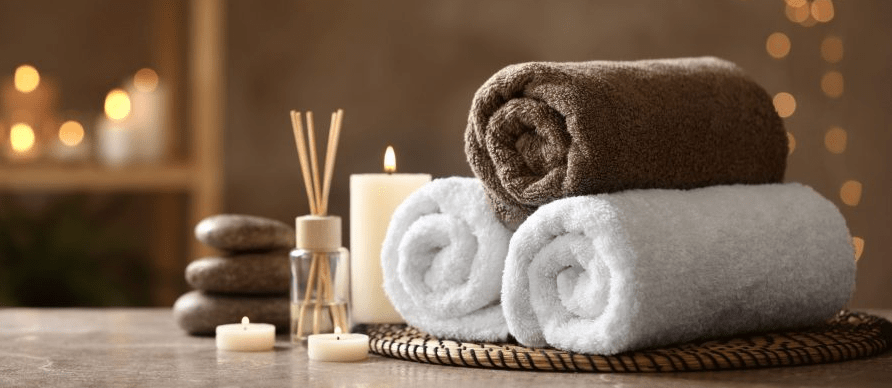Using an unclean towel after bathing is counter-productive. This is why experts suggest regular washing and changing of towels.
Towels are an important toiletry. According to experts, we transfer natural skin bacteria onto their surface when we use them and the absorbent materials are often damp and warm, making them an ideal environment for bacteria to grow. Leaving towels untended can expose them to disease-causing bacteria.
Several studies have been done on this subject over the years. A noteworthy one by a microbiologist, Charles Gerba, at the University of Arizona, made some astounding discoveries. 90 percent of bathroom towels were found to be contaminated with coliform bacteria and 14 percent of them harbored E-coli. Inadvertently, using an even slightly dirty towel after bathing is a futile act that exposes you to harmful bacteria that can have adverse effect on your skin and general health.
Here are some towel hygiene tips you can follow to keep your towel clean and to keep yourself truly clean, fresh and healthy.
- Wash your towels regularly
According to the American Cleaning Institute, you should wash your towel after three to five uses. Research according to Gerba suggests that some bacteria may survive regular washes so it is advisable to wash with hot water and detergent containing activated oxygen bleach. If you are using a washing machine, 40 degrees for dark towels to avoid fading and 60 degrees for lighter colors are the ideal settings. Some experts such as Lorraine Lea suggest, in her blog, adding a cup of white vinegar with your detergent to remove chemical dross and hardened water from your towel fibers.
- Avoid sharing towels
Numerous studies have shown that couples and family members who share towels risk exposure to fecal matter and bodily excretions which can lead to infectious diseases like ringworm and staph infections. Sharing towels is definitely detrimental to your health.
- Do not leave towels wet
Leaving towels wet in crumbled heaps or in unventilated damp places is not advisable. Put them in dyers or hang them in ventilated areas to dry. This will deter the breeding of mold and bacteria.
- Side flipping during use
You may consider using only one side or area of your towel after one bath and then using the other side or area after your next bath. Doing this may help reduce your exposure to harmful bacteria.
- Avoid using the same towel for too long
After many uses, lower-quality towels lose their effectiveness fairly quickly. The fibers become less absorbent, do not dry you well, may cause injury to your skin and may harbor harmful bacteria. These factors may render whatever skin routines you may be practicing ineffective.
- Buy quality towels
Some towels are better suited to doing what towels do, which is to keep you dry and clean. You may consider purchasing towels made with Egyptian and Turkish cotton as they are of the highest quality. Mizu towels, made of bamboo cotton infused with natural silver fibers, are also sought after because studies suggest their material kills 99% of germs.



Leave a Reply